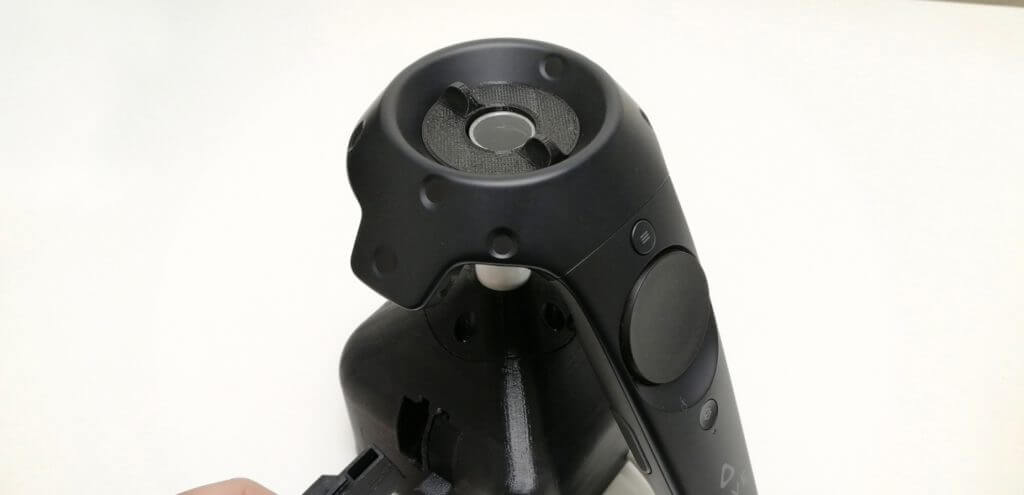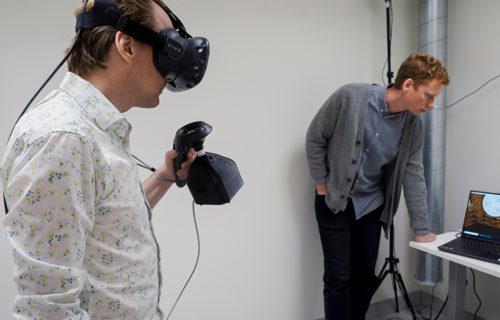STOCKHOLM, Sweden — Virtual reality wants to give you the whole experience of being immersed in another world, but how do you smell in the digital world? Researchers from Sweden have developed a new, low-cost technology that would make it possible to sniff different scents and odors in the virtual world.
The olfactometer uses valves to make a combination of odors with virtual objects and can alter the intensity of the scents.
“We hope that the new technical possibilities will lead to scents having a more important role in game development,” says Jonas Olofsson, professor of psychology and leader of the research project at Stockholm University, in a media release.
High-resolution graphics and modern-day technology have made gaming more immersive and realistic than ever before. To complete the look, researchers have built a scent machine that is controlled by the game computer. In the study, participants used virtual reality technology to enter a wine cellar. From there, they picked up different types of wine glasses to guess their aroma. When the player lifts the glass, the scent machine releases a small aroma representing the wine.
“The possibility to move on from a passive to a more active sense of smell in the game world paves the way for the development of completely new smell-based game mechanics based on the players’ movements and judgments,” says Simon Niedenthal, an interaction and game researcher at Malmö University.

How does it work?
The olfactometer works through four different valves connected to the channel. The middle of the small machine has a fan sucking air into a tube. With a computer, the player can open and close the four channels to create different mixtures of scents. The scents then blend together to imitate the smell of wine. Like most games, there are different levels of difficulty with increasing levels of complexity in using the scent machine.
“In the same way that a normal computer game becomes more difficult the better the player becomes; the scent game can also challenge players who already have a sensitive nose. This means that the scent machine can even be used to train wine tasters or perfumers,” adds Olofsson.
The application of scent technology goes beyond playing video games. For people who have lost their ability to smell after recovering from COVID-19, for example, the olfactometer can provide game-based training to help patients regain the sense of smell. Smell training is already a common medical recommendation for people who lose their smelling ability after a cold or other viral infection. However, most people discontinue the training out of boredom.
“I hope that the fact that drawings and code are openly available as ‘open source’ will lead to an opportunity for game companies to start creating new, commercial products for scent training using the new technology,” explains Olofsson.
The study is published in the International Journal of Human-Computer Studies.


Virtual reality is an oxymoron. There is nothing real about the virtual world. Creating a phony sense of smell is a prime example. It’s fake. It’s not real.
It’s also not “another world”. It’s a fake and false representation fabricated by the minds of developers and nothing like the real world. Nothing you see, feel, do or experience is like the real world.
The fact that humans are constantly trying to escape the real world is actually quite sad and a strong indictment against perusing these fabrications. The real world will never go away, no matter how many ‘verses’ humans manage to fabricate. Providing humanity an escape ramp to a phony world isn’t something to be applauded, it’s something that we should reject because it fosters dependencies versus real life skills.
An entire generation of non-functioning highly disabled people dependent on virtual reality to cope with life itself is not a laudable goal. It’s a nightmare for the rest of us who will have to take care of these people.
Running away from reality through the ‘virtual’ is a notion that needs to stop.